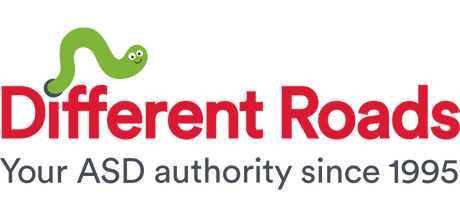Our brand new social skills curriculum aims to fill an important gap in social skills programs: support and education for pre-verbal and minimally verbal learners with autism and other global delays. In this week's blog post, authors Joanne J. Kim, PhD and Stephanny Freeman, PhD explain how to adapt this innovative new program for telehealth and the COVID-19 era.
You’ve heard it…
You’re living through it...
We are living in a “new normal” with the novel coronavirus. Across all social spaces, the challenges of remembering to physically distance, wear masks, sanitize our hands, and ultimately learn new ways of being has become a challenge for us all.
Teachers and therapists who work with children with Autism Spectrum Disorder and other global delays are being asked to integrate a new learning platform, and to think more creatively about children who often require more direct face-to-face teaching. Remote learning presents problems for both the teacher/therapist and the child: How do we capture the attention and sustained engagement of children who require added environmental and behavioral supports to access learning opportunities? In return, how are children expected to engage, learn, and generalize educational content?
Parent involvement can be the answer. Parent involvement or participation is widely recognized as a “best practice” strategy in the education of children with ASD (National Research Council, 2001). Parent involvement can take several forms including school-based activities like volunteering in the classroom (not a likely option at the moment) and communicating with teachers, as well as home-based activities like practicing social communication skills (Benson, Karlof, & Siperstein, 2008). Combining both forms can yield an effective way to continue targeting social skills using the PCSES curriculum. Though there may be multiple ways to do so, we describe two ways here.
Method 1: Parent Education Only
This method involves the professional educating the parent/caregiver through verbal and written information on the target skill, including how to embed the target skill in an appropriate activity as well as a discussion on execution strategies. This option does not involve the child.
For example: Mr. Brown schedules a Zoom meeting with Sam’s mother (primary caregiver). Mr. Brown reviews this week’s social skill target using the screen share function. In fact, Mr. Brown is using the Home Generalization Activity in the PCSES curriculum. A discussion follows on how to modify the example activity to Sam’s home and community settings. Mr. Brown encourages Sam’s mother to do her best and to contact him should any further questions or concerns arise, and sends all reviewed documents via email to Sam’s mother.
Though this method may not result in the fastest progress, research has indicated reduced levels of parental stress as compared to parent-mediated intervention (method 2) as parents are not tasked to act as teachers or therapists with their child, and are free to vary/modify the activity as needed (Kasari et al., 2015).
Method 2: Parent Mediated Intervention
This method involves the professional providing direct parent coaching with the child present. Written information about the target skill may also be provided; however, emphasis is placed on coaching and practicing while the professional is present.
For example. Mr. Brown schedules a Zoom meeting with Jun’s grandmother (primary caregiver). Mr. Brown begins the session by reviewing this week’s target skill and the pre-selected structured activity using the screen share function. As with Sam’s mother, he is using the Home Generalization Activity in the PCSES curriculum. Mr. Brown encourages Jun’s grandmother to facilitate the activity. During this time, Jun’s grandmother is encouraged to stop and ask questions at any time. Mr. Brown also provides direct feedback, coaching tips, and praise to Jun and his grandmother during the activity itself. Once the guided practice is over, Mr. Brown encourages Jun’s grandmother to continue to practice this activity throughout the week, and stresses that he is available for questions at any time. The Home Generalization Activity is emailed to Jun’s grandmother afterwards.
Though direct parent coaching with the child present has been found to be more effective than a parent education only model in improving specific social outcomes, as noted previously, parents/caregivers have reported high levels of maintained stress with this model (Kasari, Gulsrud, Paparella, Hellemann, & Berry, 2015).
As teachers and therapists, it may be wise to select the method of parent involvement that best suits the needs of specific families. Either way, the children that are served will continue to make gains during this time due to teachers’ and therapists’ dedication and fortitude. For this, we thank you.
References
Benson, P., Karlof, K. L., & Siperstein, G. N. (2008). Maternal involvement in the education of young children with autism spectrum disorders. Autism, 12(1), 47-63.
Kasari, C., Gulsrud, A., Paparella, T., Hellemann, G., & Berry, K. (2015). Randomized comparative efficacy study of parent-mediated interventions for toddlers with autism. Journal of Consulting and Clinical Psychology, 83(3), 554.
National Research Council. (2001). Educating children with autism. Washington, DC: National Academies Press.

